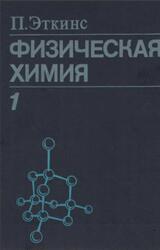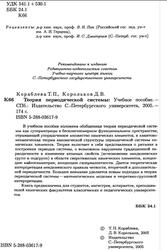The growing demand for energy, brought about by the rising standard of living in the developing world and global population growth, has made it imperative that new energy sources beyond fossil fuels be found to sustain and grow the current economy. The limited supply of fossil fuels and its adverse effect on the environment also makes it necessary that these sources should be abundant, renewable, secure, clean, safe, and cost-effective. In this regard hydrogen, the most abundant element in the universe and third most abundant element on the earth, has the potential to meet this growing energy need. In addition, hydrogen offers many advantages over other fuels: it is non-toxic, clean to use, and packs more energy per unit mass than any other fuel. However, hydrogen is not an energy source but an energy carrier. Since it does not occur freely in nature and is gaseous at room temperature and pressure, it needs to be produced and stored.

DEVELOPMENT OF PHOTOCATALYSTS FOR SOLAR HYDROGEN PRODUCTION.
Hydrogen is an ideal clean energy as well as a raw material in many chemical industries. Hydrogen is mainly produced by steam reforming of hydrocarbons such as methane in industry. Hydrogen must be produced from water using renewable energy sources such as solar light, if one considers the energy and environmental issues. Photocatalytic water splitting is one of the candidates for solar hydrogen production. When one thinks usage of solar energy one encounters the difficulty due to its low density of the energy. A large area should be used in order to harvest a reasonable amount of solar energy. The photocatalytic water splitting will be advantageous for the large-scale application for the solar hydrogen production because of the simplicity.
Photocatalysis is classified into two categories. One is of application to the improvement of living environment such as anti stain, self-cleaning, and superhydrophilicity [1]. TiO2 photocatalysts are widely used for these applications and many industrial products have been made. Another direction of the photocatalysis is a light energy conversion as represented by water splitting. Water splitting using the light energy has been studied for a long time using powder and electrode systems since the Honda-Fujishima effect was reported [2,3]. Although it is under a basic research it is still a challenging topic. This research field is remarkably progressing recently. It is no doubt that photocatalytic water splitting will contribute to green sustainable chemistry. The final target of this research field is to achieve an artificial photosynthesis and solar hydrogen production from water.
Contents.
Preface.
Overview.
Hydrogen Production.
Hydrogen Storage.
Fuel Cells.
Safety and Education.
Scientific Program.
Organization.
Participants.
Author Index.
Бесплатно скачать электронную книгу в удобном формате, смотреть и читать:
Скачать книгу Materials Issues in a Hydrogen Economy, Proceedings of the International Symposium, Jena P., Kandalam A., 2009 - fileskachat.com, быстрое и бесплатное скачивание.
Скачать pdf
Ниже можно купить эту книгу, если она есть в продаже, и похожие книги по лучшей цене со скидкой с доставкой по всей России.Купить книги
Скачать - pdf - Яндекс.Диск.
Дата публикации:
Теги: учебник по химии :: химия :: Jena :: Kandalam
Смотрите также учебники, книги и учебные материалы:
Следующие учебники и книги:
Предыдущие статьи:












